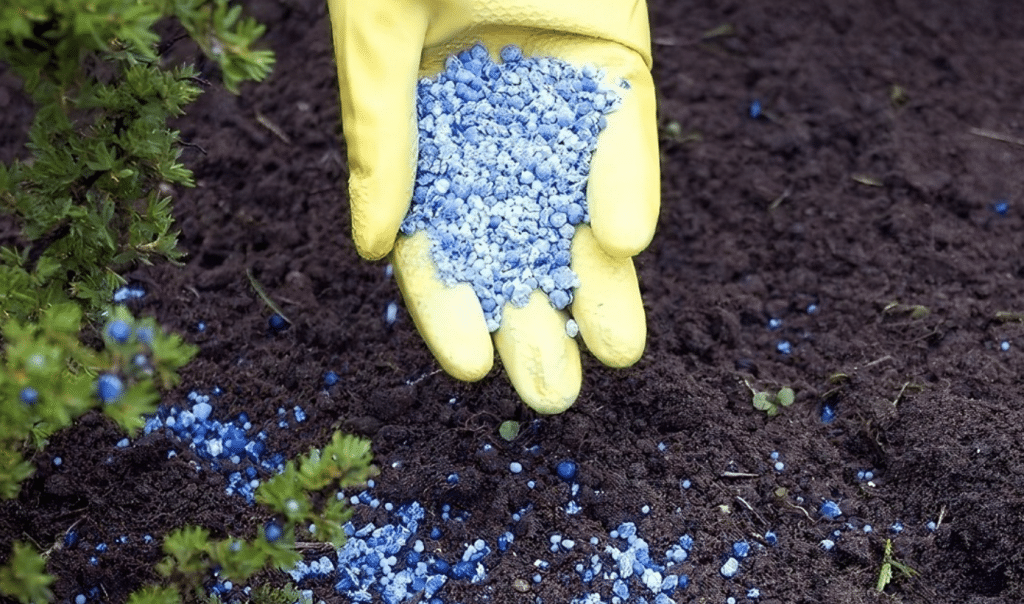Consumers have no way of knowing if their produce was grown with synthetic fertilizer
We’re tapping into a crucial—and surprisingly underexplored—nexus of environmental policy, public perception, industrial influence, and regulatory sleight-of-hand. Here’s a deep dive into the misleading issues surrounding synthetic fertilizer.
1. The Regulatory Mirage: Why FDA Absence Misleads the Public
Most Americans assume that if something touches our food system, the FDA must be in charge. That assumption is dangerously incomplete. Synthetic fertilizer isn’t classified as a food additive or drug, so the FDA is nowhere in sight. This absence leads many to believe it’s inherently benign or at least well-regulated elsewhere. In reality, it slips into a regulatory gray zone where oversight is fragmented, minimal, and often reactive rather than preventive.
2. Enter the EPA: A Narrow Lens on a Wide Problem
The Environmental Protection Agency steps in—but only narrowly. Its role focuses on air and water pollution linked to fertilizer runoff, not health consequences stemming from bioaccumulation in food systems or long-term exposure. And even within the EPA’s jurisdiction, enforcement is patchy. The Clean Water Act, for example, regulates “point sources” like factories but struggles with “non-point sources” like agricultural runoff—a major source of nitrogen pollution.
3. How Fertilizer Became a Fossil Fuel Product in Disguise
Synthetic fertilizers are mostly derived from natural gas via the Haber-Bosch process—essentially transforming fossil fuels into food. That’s rarely acknowledged by the fertilizer lobby or even environmental think tanks, despite the clear climate implications. When synthetic nitrogen fertilizer is used on soil, microbes convert it into nitrous oxide (N₂O), a greenhouse gas nearly 300 times more potent than CO₂.
4. The Myth of ‘Feeding the World’
Proponents often justify synthetic fertilizers by claiming they’re essential for feeding a growing global population. But this argument obfuscates how much of industrial agriculture is devoted not to feeding people but to biofuels, livestock feed, and processed foods. Furthermore, overuse of fertilizers has led to diminishing returns—more fertilizer doesn’t always mean more food, just more pollution.
5. The Agricultural Arms Race
Farmers are caught in a loop: intensive fertilizer use depletes soil health, which in turn requires even more synthetic inputs. This feedback cycle, often referred to as “addictive agriculture,” is rarely disclosed to consumers—or to farmers without access to sustainable education networks.
6. Respiratory Fallout: The Human Cost
Airborne ammonia and nitrous oxide emissions from synthetic fertilizer use have been linked to respiratory illnesses, particularly in rural agricultural communities. Studies show correlations with asthma, bronchitis, and chronic obstructive pulmonary disease. Yet because these health impacts are dispersed and slow-burning, they rarely make headlines.
7. Aquatic Dead Zones and the Disappearing Ecosystem
Runoff from synthetic fertilizers feeds algal blooms that choke off oxygen in lakes, rivers, and coastal waters. The Gulf of Mexico’s infamous “dead zone,” which grows every summer, is a case in point. It’s not only an ecological disaster—it threatens fishing economies, biodiversity, and drinking water safety in downstream communities.

8. Political Lobbying and the Fertilizer Industrial Complex
Fertilizer manufacturers—some of the same multinationals that dominate petrochemicals—spend millions lobbying against stricter environmental regulations. They present synthetic fertilizers as apolitical tools of efficiency, obscuring their role in deepening climate crises and systemic inequalities in global agriculture.
9. Greenwashed Narratives in the Media
Mainstream media coverage tends to frame synthetic fertilizers as agricultural necessities rather than environmental liabilities. When they are discussed, it’s often within narratives of “improving efficiency” rather than the structural overhaul needed. The portrayal is sanitized—scientific breakthroughs without the sociopolitical costs.
10. Misinformation by Omission: The Role of Ag Influencers
Big Ag’s social media presence is booming, often featuring so-called “farmerfluencers” who tout the safety and necessity of chemical inputs. What’s missing? Context about soil degradation, corporate consolidation, and long-term health risks. This curated slice of online reality props up the illusion of harmless innovation.
11. Carbon Sequestration Disrupted by Fertilizer Use
Healthy soil is a carbon sink, but synthetic fertilizers disrupt natural microbial networks and organic matter cycling. As a result, carbon is released instead of stored. This ironic twist turns farming—a potential climate solution—into a net emitter.
12. Indigenous and Regenerative Knowledge Erased
Indigenous agricultural systems have long prioritized soil health, crop rotation, and natural fertilizers like compost and manure. Synthetic fertilizer use not only marginalizes these practices but actively erodes the ecosystems that made them possible. This is both an environmental and cultural loss.
13. International Power Dynamics and Food Sovereignty
Developing nations are sold on synthetic fertilizer via aid packages, marketing campaigns, and trade deals. But dependency on external inputs undermines local autonomy and food security. Countries become chemically dependent and financially bound to foreign corporations.
14. Lack of Transparency in Food Labeling
Consumers have no way of knowing if their produce was grown with synthetic fertilizer. While organic labels exclude them, conventional food has no such identifier. This gap reinforces the illusion of safety and hides environmental externalities from public view.

15. What Can Be Done? A Glimmer of Hope
Movements advocating for regenerative agriculture, localized food systems, and policy reforms are gaining traction. But change hinges on public understanding—which requires dismantling the current misinformation apparatus. Until then, the illusion of benign fertilizer use will continue to cloud environmental consciousness and policy debates.
More to come
Staff Writer Lisel B




